Winter on Kangaroo Island – we settle into our new home at Wilderness Valley
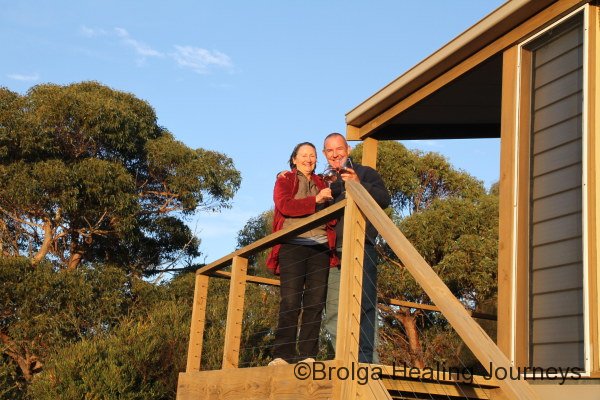
As our first winter on Kangaroo Island draws to a close, it seems a good time to report on our early experiences as ‘Islanders’. The weather today is wild, with clouds whipping across the sky, raining one minute, bright sunshine the next. And that is quite appropriate given that winter-long the weather has been changeable and dramatic. Melbourne prides itself on delivering four seasons in one day, but I think it has nothing on KI. One of the first lessons we learnt was that a cloudless sky and bright sunshine did not mean you could go exploring across the property without a rain-jacket. In the blink of an eye, the clouds roar up, you’re blasted by driving rain, then it clears just as quickly to make you wonder how it was that your clothes had become drenched.
The weather is dramatic, primal, at times infuriating, always invigorating and beautiful. We are blessed with an amazing aspect in our new home from which to view the weather, often watching out the large north-facing studio windows as horizontal rain flurries whip across our land and neighbouring Flinders Chase National Park across the valley. We have received over 100mm of rain each month this winter, according to our rain gauge, but we believe that the recordings could have been much higher had the gauge recorded the near horizontal rainfall; perhaps we should turn the gauge on its side in future.
Situated on the western end of KI, we are first to catch the weather patterns as they travel eastwards across the southern ocean. And believe me, the weather does build up some momentum; if you travelled due west from KI, you’d miss the bottom of Western Australia, and you’d also pass below Africa’s Cape of Good Hope; the first landmass you would reach is South America, all of which means that the winds travel some considerable distance unimpeded by land before reaching KI. We both reckon we must breathe some of the purest air on the planet here on Wilderness Valley.
But the weather hasn’t always been wild. We have had days of gorgeous sunshine, when the valley takes on an almost preternatural glow. At those times we can simply look on in wonder.
Despite the often wild weather, we have had plenty of opportunities to explore our new home. (In fact, if you are properly attired, it is an amazing experience the wander outside during the wild weather.) We have a little over 100 hectares (250-odd acres) to play on; around 90 percent of which is heritage-listed bushland. ‘Heritage-listing’ means that we cannot develop or use that land, but must protect it; which is absolutely perfect for us and was, in fact, something we had long dreamed of doing. The 20 acres or so we can use will give us more than enough room for planting vegetables and fruit trees, running chooks and maybe even setting up a few golf holes. In fact, one of our first projects was to have a large enclosure built to protect our vegetable and herb garden. Without it, all our efforts would go into feeding the local wildlife. Whilst we know they would be appreciative to get a feed, we would also like to get some of our produce for ourselves!
Our heritage bush links up directly with more on the next property, while Flinders Chase National Park is directly across the road from us. So our property forms part of a large corridor of protected bushland providing a range of wilderness and habitat for wildlife.
We are yet to explore all of our heritage bush, but have given it a reasonable go! A creek passes through our bushland on its way to the imaginatively named North West River in the nearby national park. The creek is lined with enormous Stringy Bark trees, with mature Sugar Gums further up the hillside. The creek-line itself is wild and overgrown; a mixture of bracken fern, native grasses, xanththorrhoea (Tate’s Grass Tree), banksias and many other small and often prickly native plants. It takes quite an effort to traverse the creek-line but it is well worthwhile.
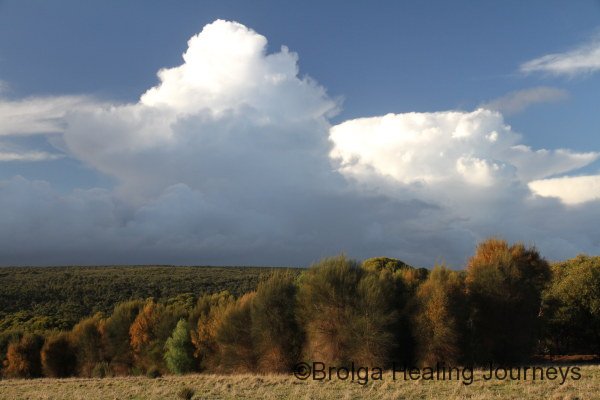
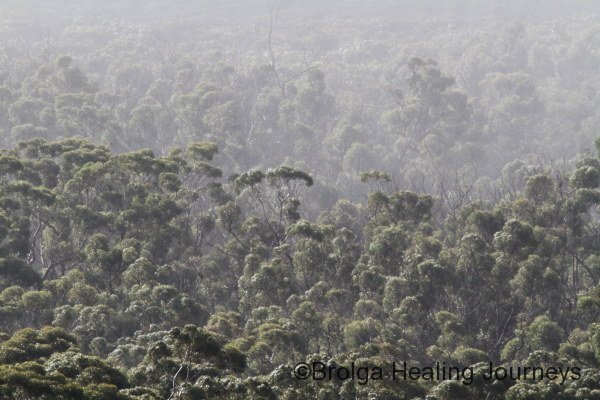
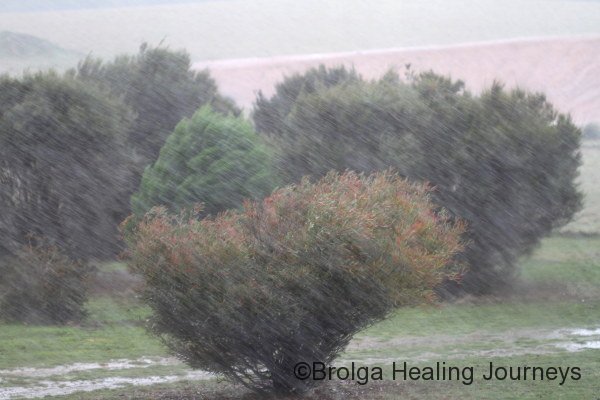
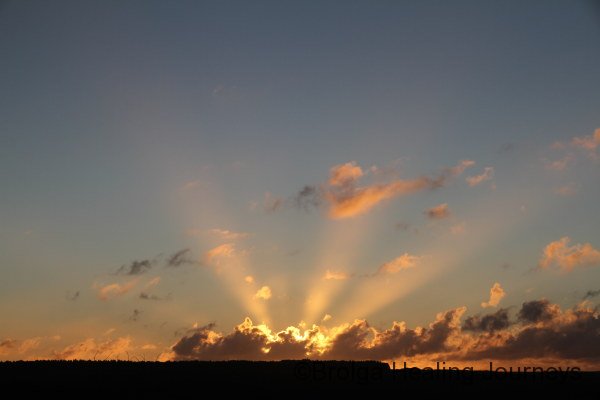
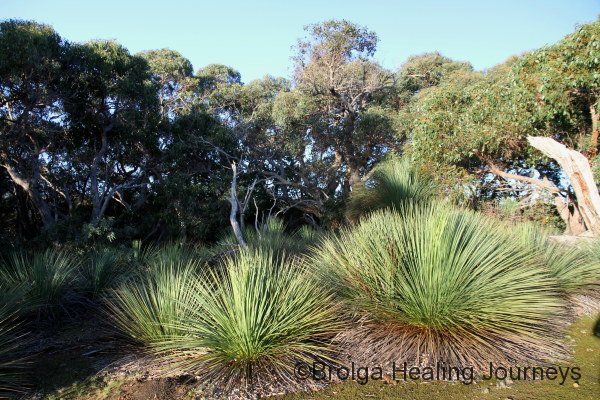
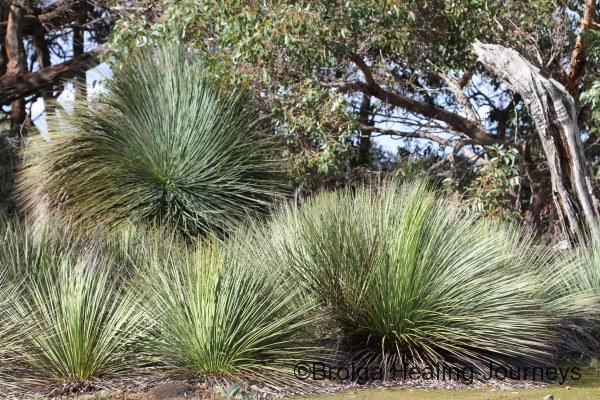
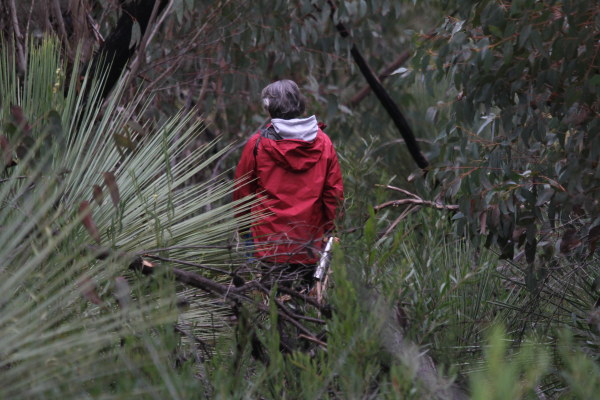

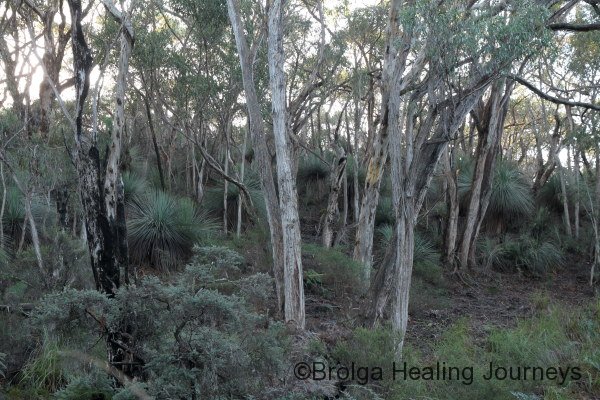
A FUNGAL WONDERLAND
We have, for instance, discovered an amazing array of fungi growing along the moist hill-sides near the creek. In fact, fungi are popping up eveywhere. All shapes, sizes and colours, some beautiful, others quite grotesque. Some are the size of dinner plates (or larger) while others are so tiny as to be barely visible with the naked eye. Apparently, Kangaroo Island is renowned for its range of fungi, and we can now see why. The following photos taken along our creek, among our native trees, and across our paddock should give you some idea of the moss-lined and fungi-rich winter wonderland we have here.
I was inspired by the variety of species to purchase a field guide to Australian fungi, in the naive hope of identifying all our species. With the arrival of the field guide came the realisation that the task was enormous and way beyond me; there are numerous species with a similar appearance, many of which can only be differentiated by examination under a microscope. Anyway, I have done my best to identify them where I can, and am happy to stand corrected by any mycologists out there! I’ll add more species names to the photos over time.
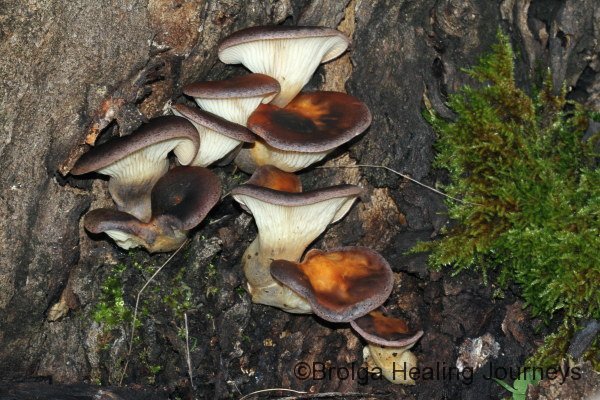
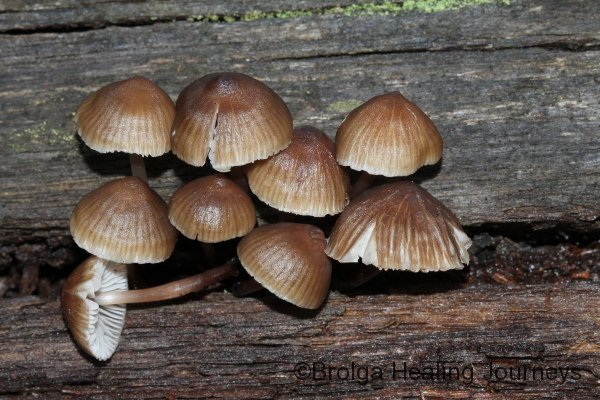
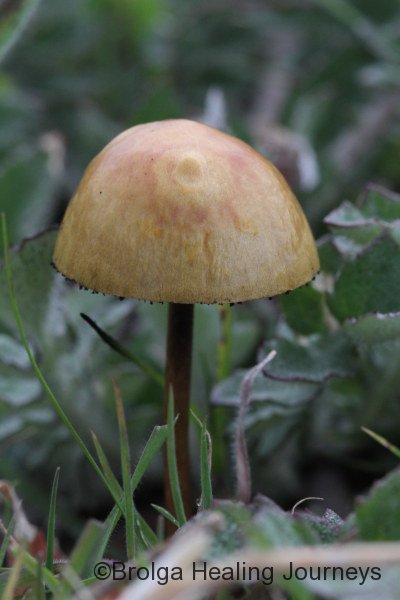
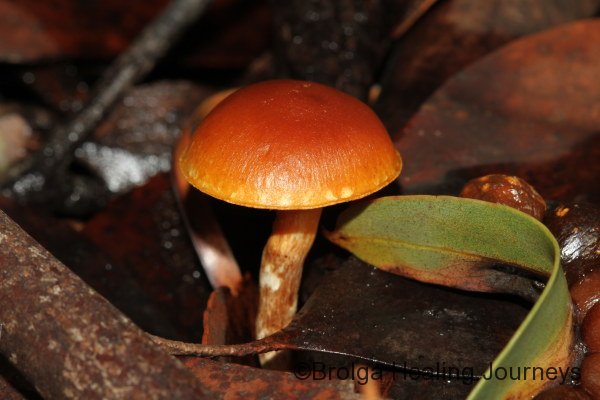
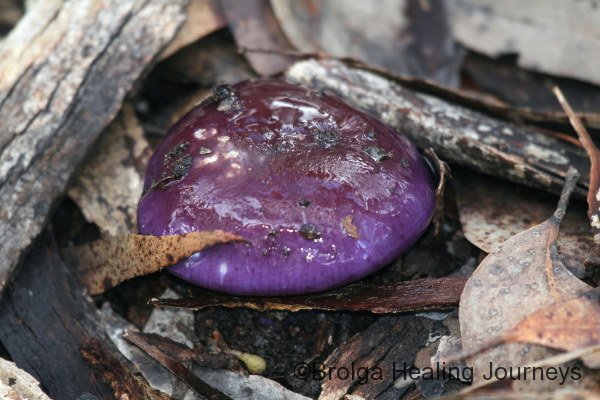
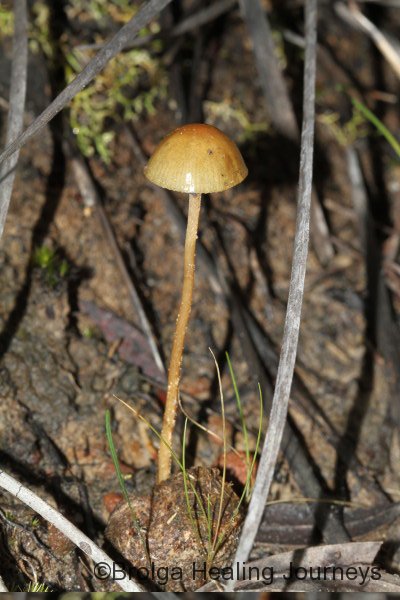
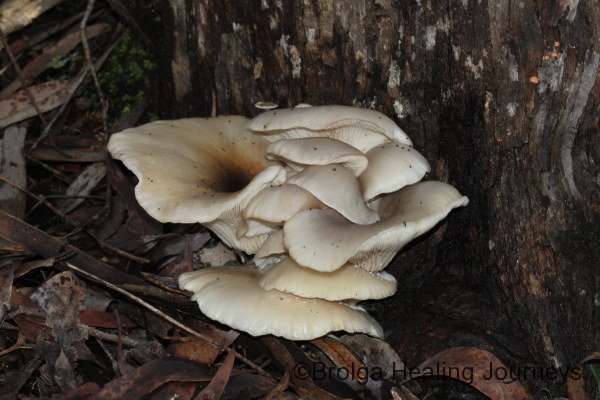
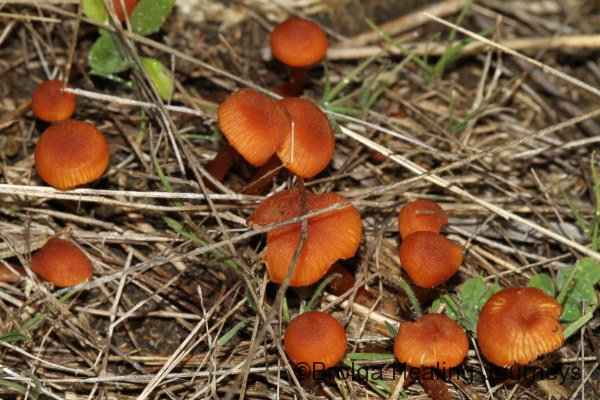
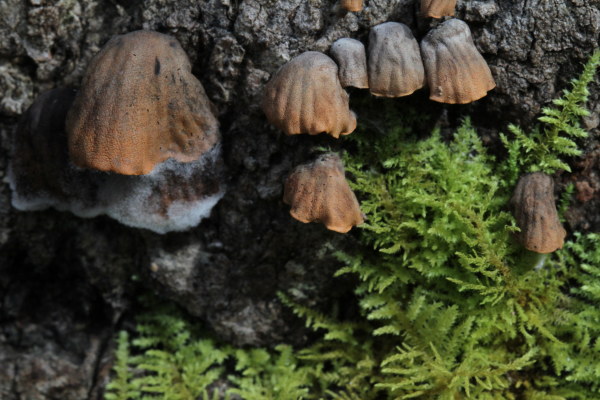
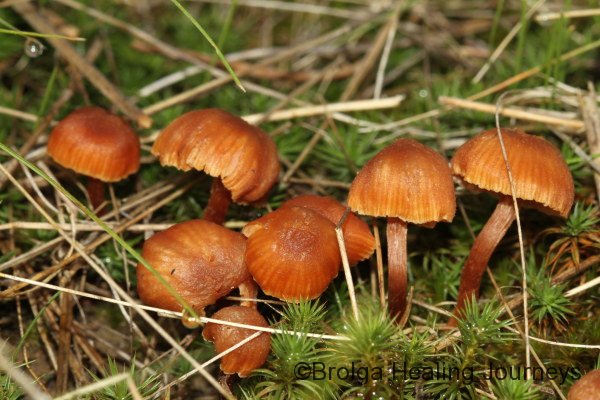
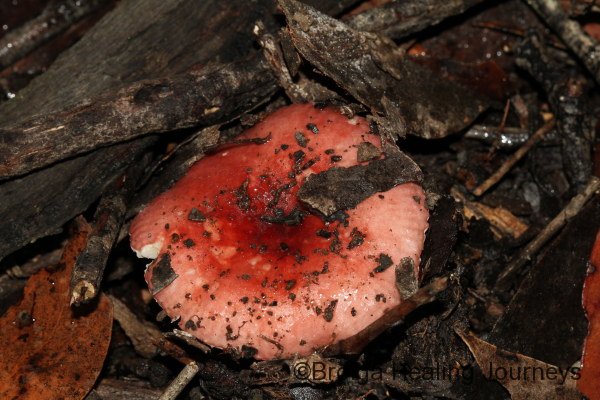
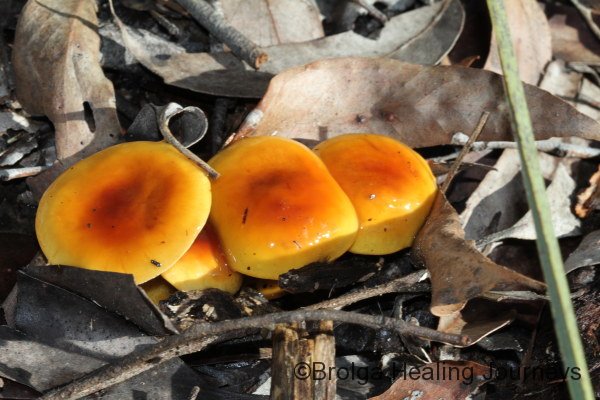
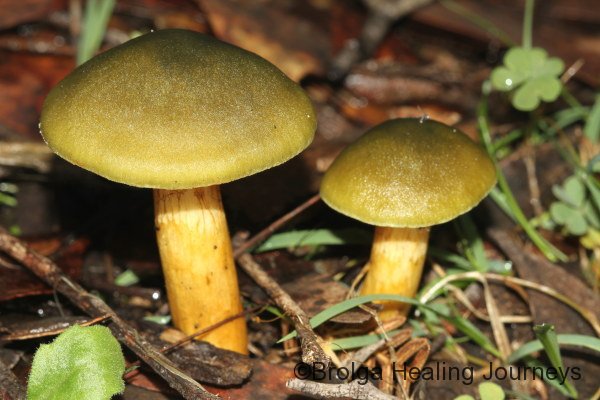
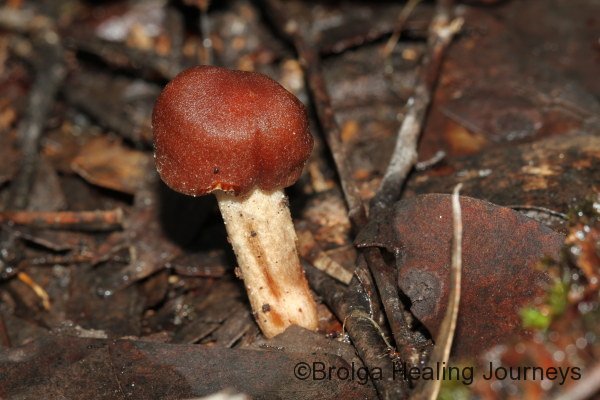
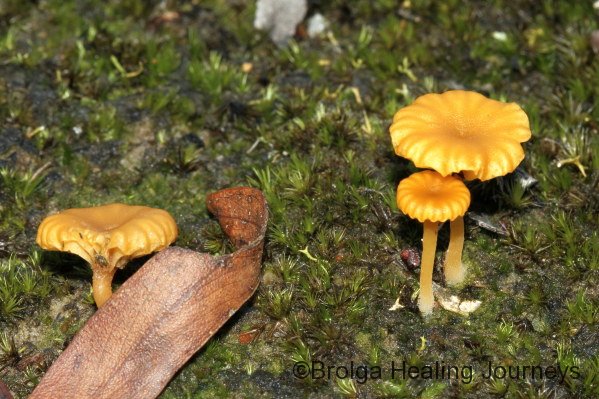
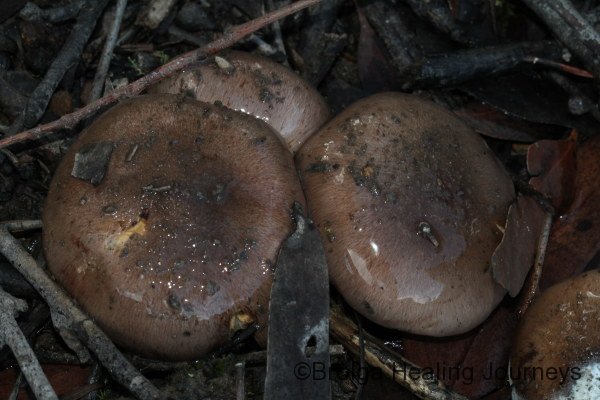
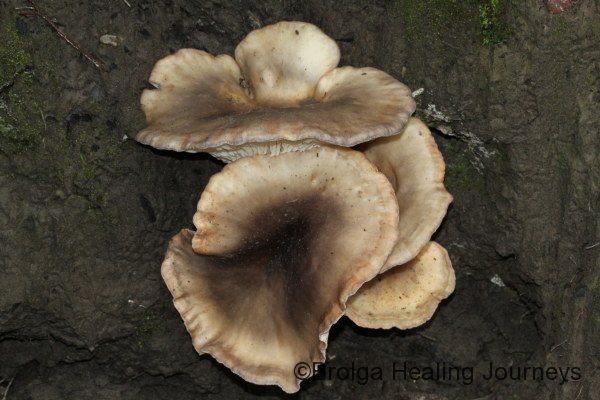
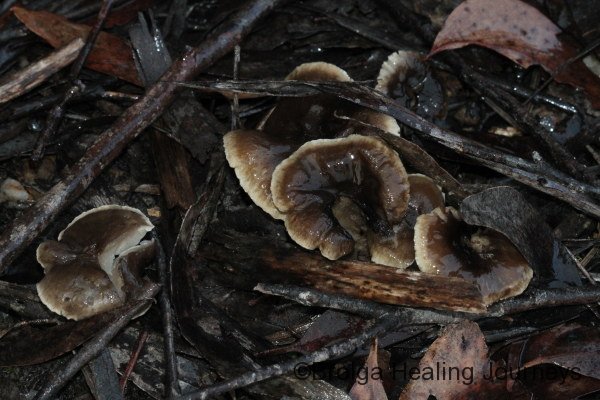
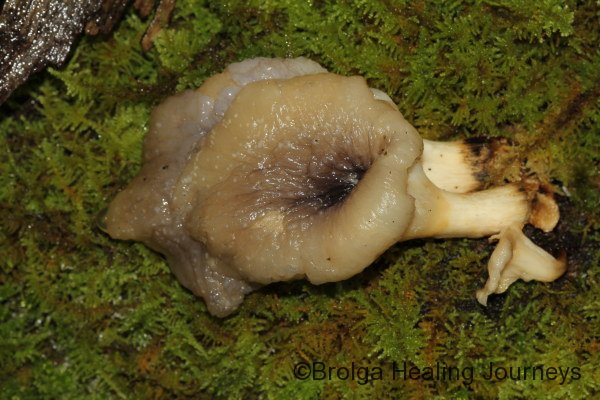

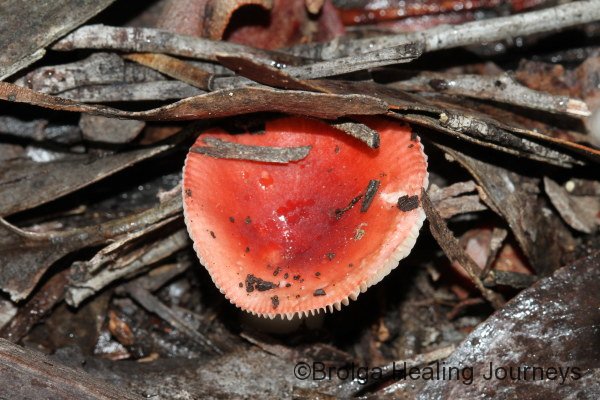
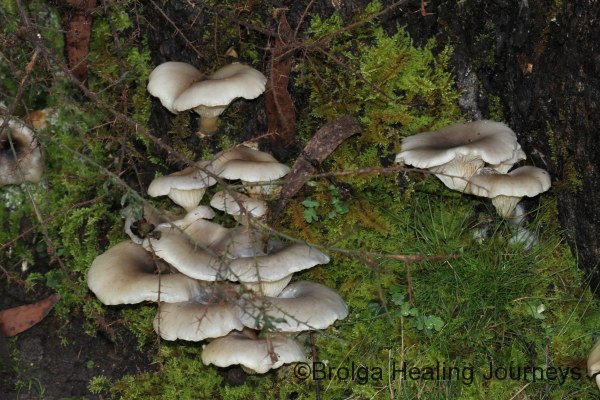
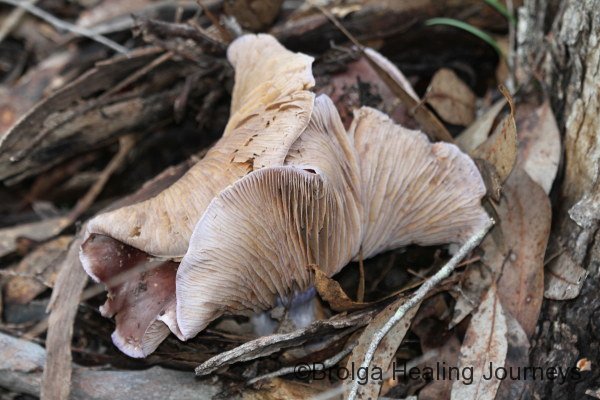
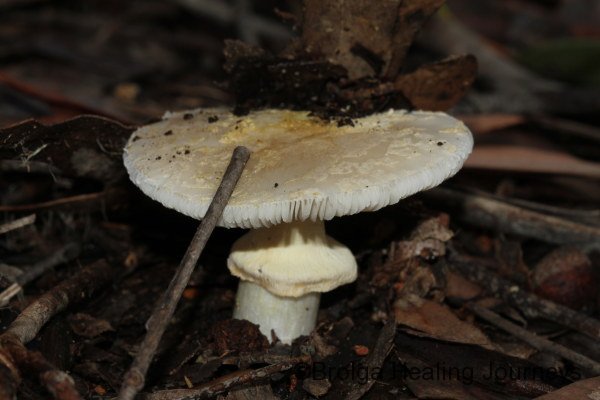

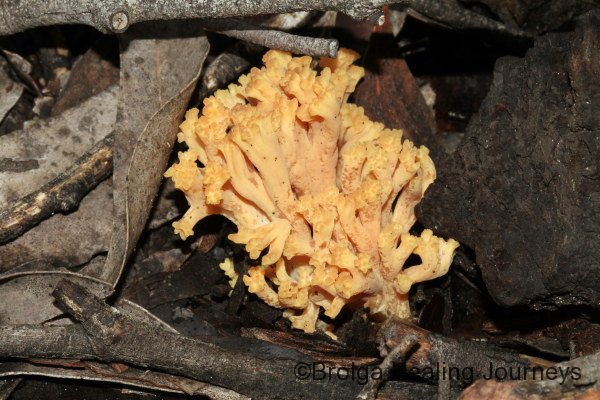
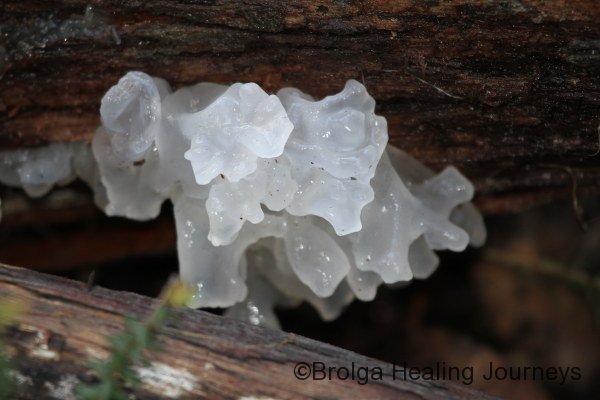
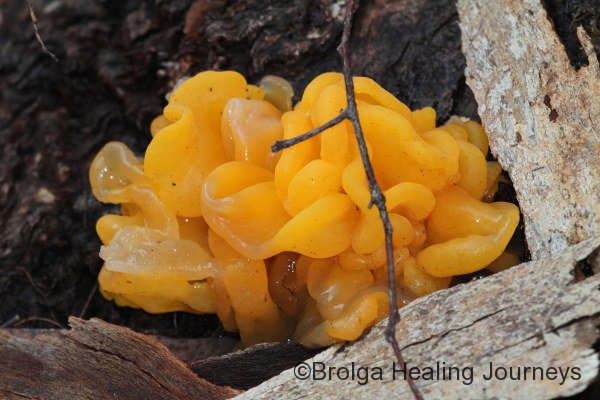
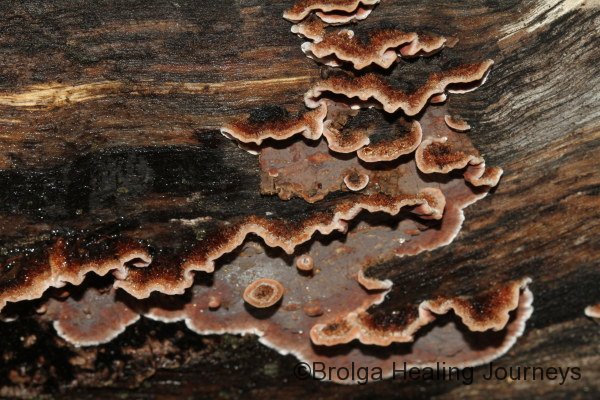
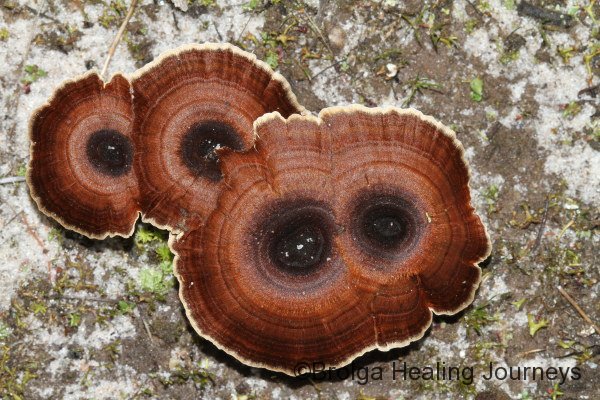
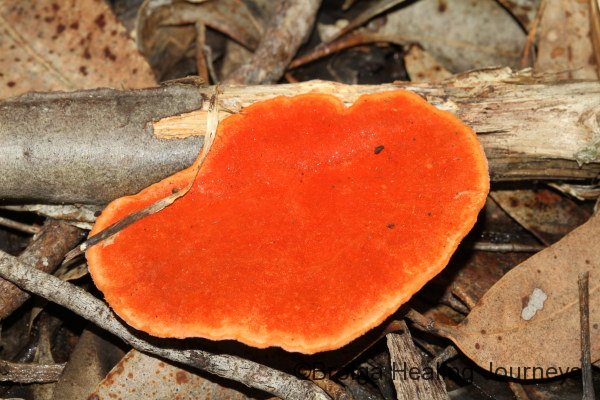

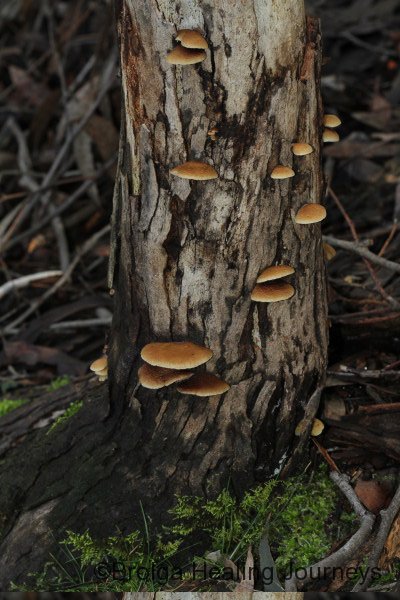
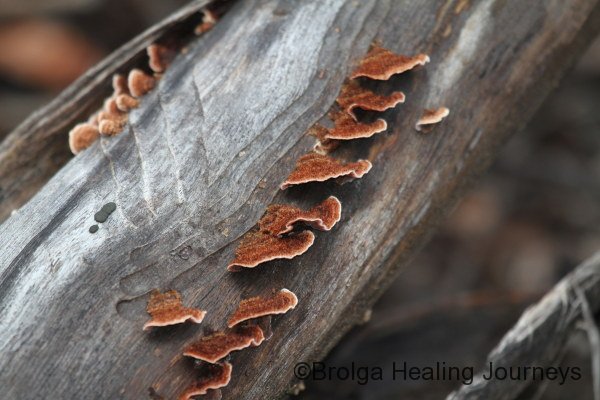

There are many more images and species in the following galleries if you are interested.
WILDFLOWERS START TO BLOOM
Towards the end of winter, as the days grew longer and warmer, the fungal kingdom gave centre-stage to plants, and the flowers began to bloom. We are making new discoveries by the day. So far we’ve identified at least four orchid species in the vicinity of the creeks on our property, and many flowers including the beautiful Island Boronia.
Further up the hillside, in heath and mallee habitat, there are at least three Acacias (wattles) in bloom probably with many more to come, along with two Banksias (Silver Banksia and Desert Banksia), a glorious sight indeed, and many equally beautiful smaller flowering plants. The Guinea-Flower (Hibbertia) is widespread, as are the Common and Bearded Heaths.

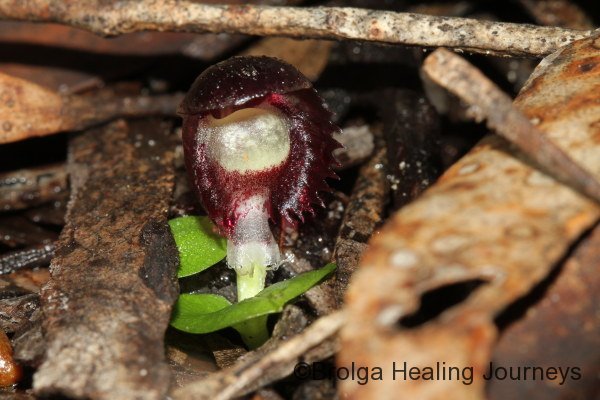
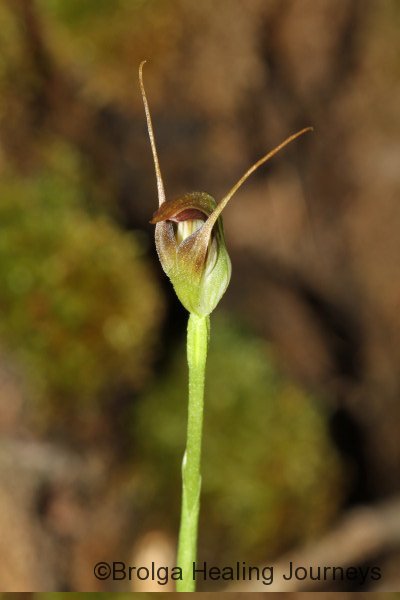
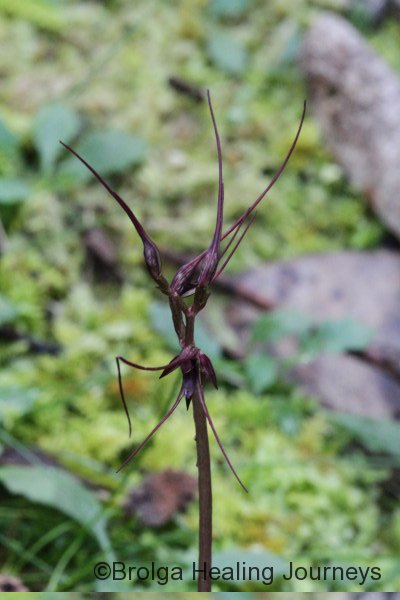
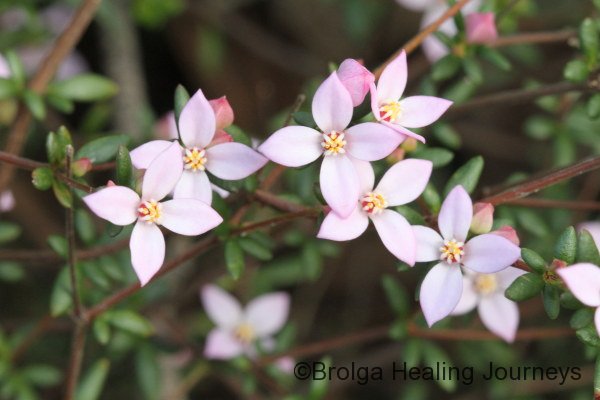
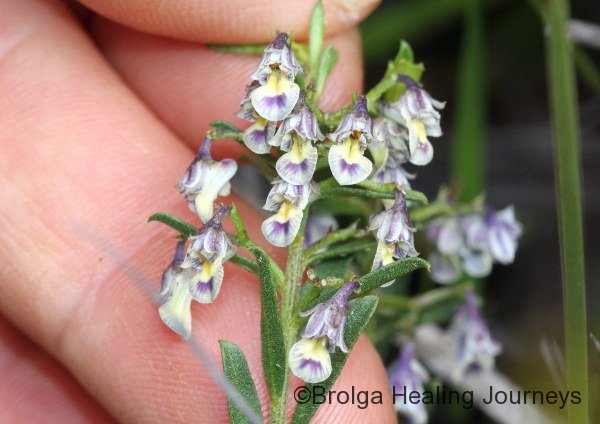
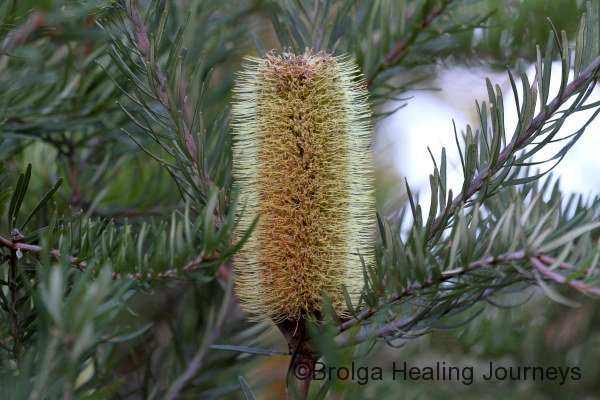
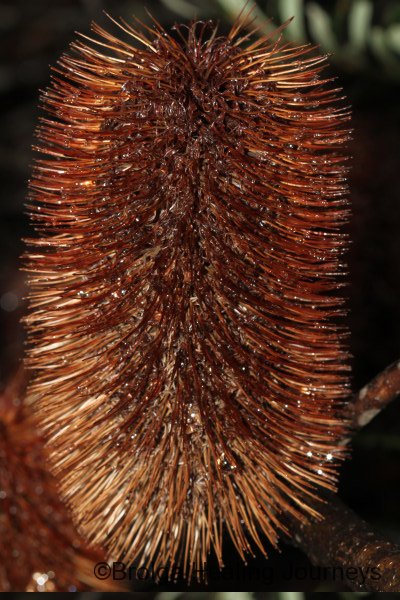
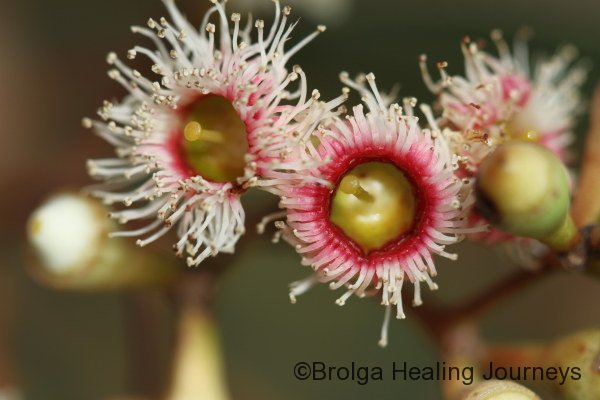
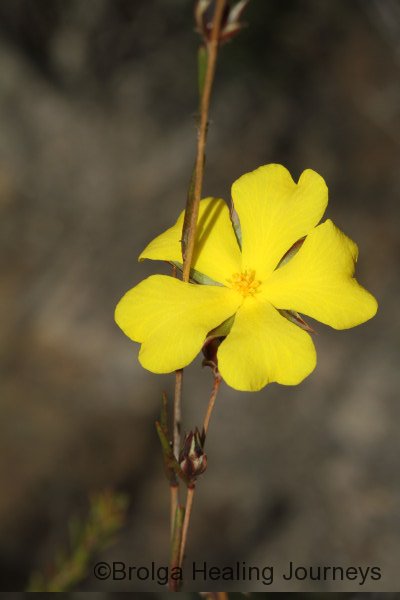
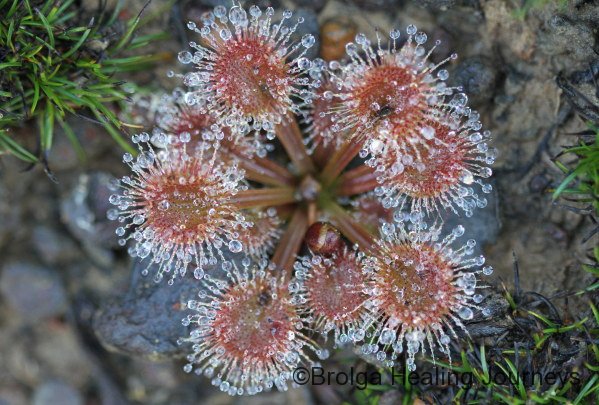
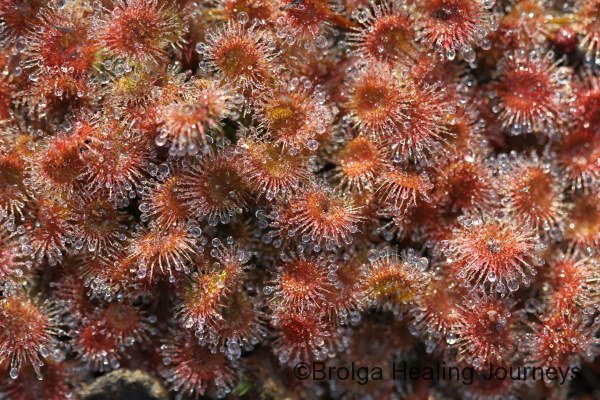
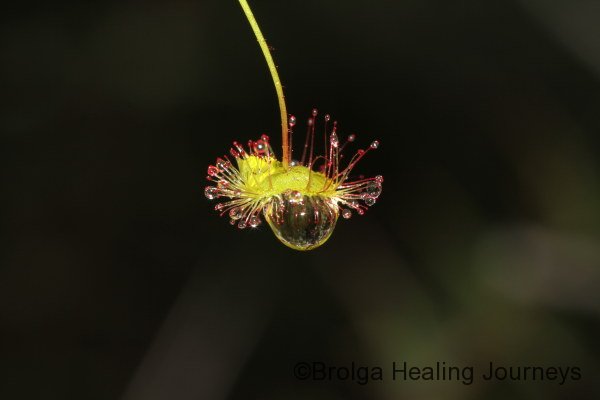
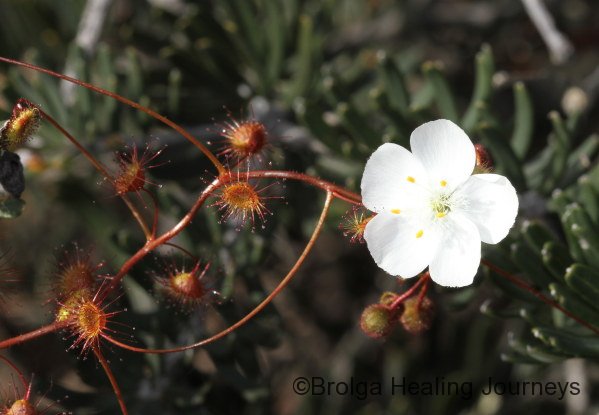
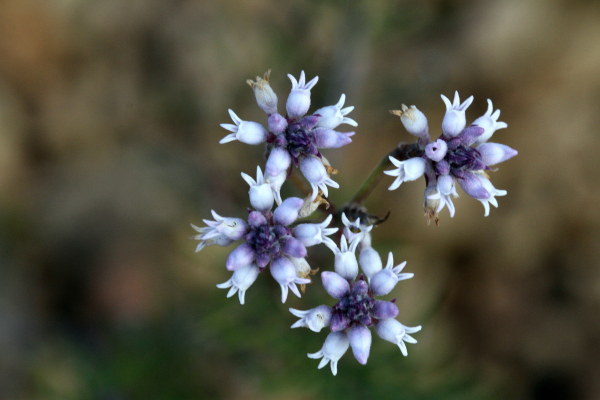

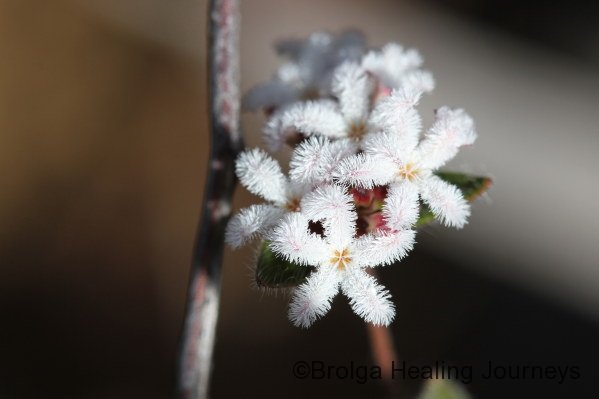
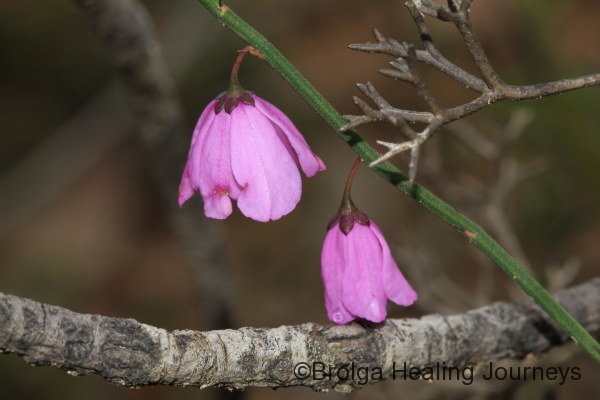
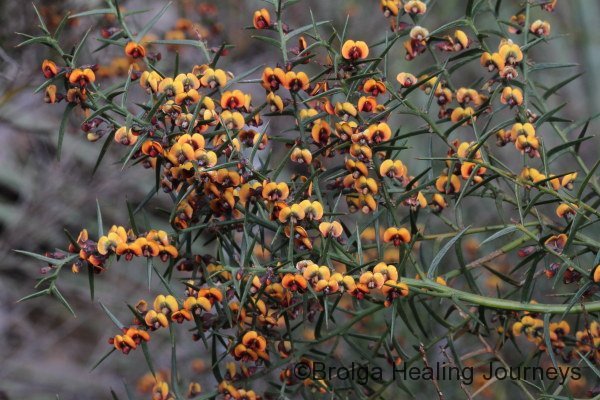
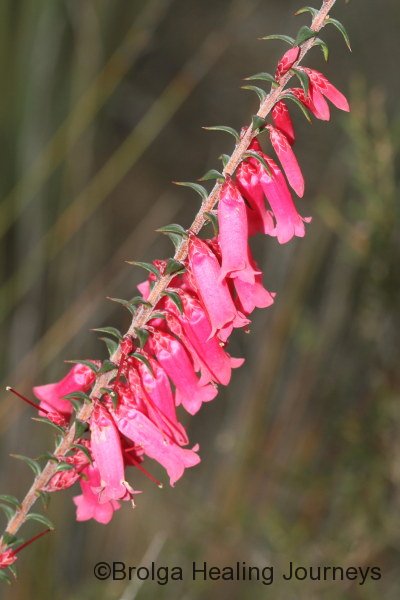
OUR WILDLIFE
Of course, with all this wilderness and native vegetation, we have plenty of wildlife on our land. Most visible are the birds (44 species counted so far) and the KI Kangaroos around every morning and afternoon grazing on our paddock. At dusk the Tammar Wallabies emerge from the surrounding scrub to tend the lawns around the studio; in calmer weather we are visited by over thirty of an evening, and with Spring-time approaching the males are getting a bit ‘restless’ and are often witnessed boxing on the lawns, an endearing display reminiscent of those by their larger kangaroo cousins. We also get the occasional Common Brushtail Possum visitor at night, have Echidnas wandering here and there in search of food (one evening we watched as a group of six made there way across our nearby paddock), and spot the occasional Koala in our eucalypts.
We are very confident that our property is home to Western Pygmy Possums, as they have been recorded on the property next door which adjoins our heritage bush. We also hope to find Southern Brown Bandicoots and Kangaroo Island Dunnarts on our land.

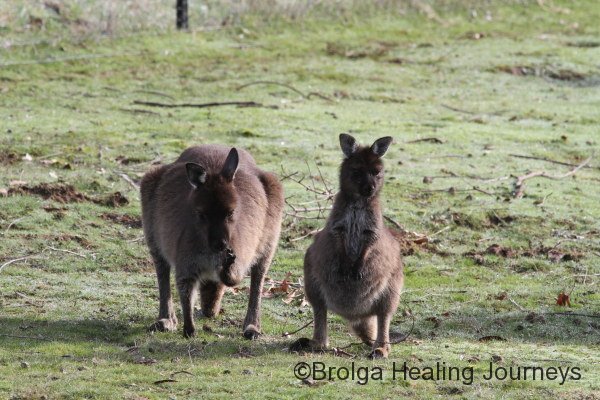

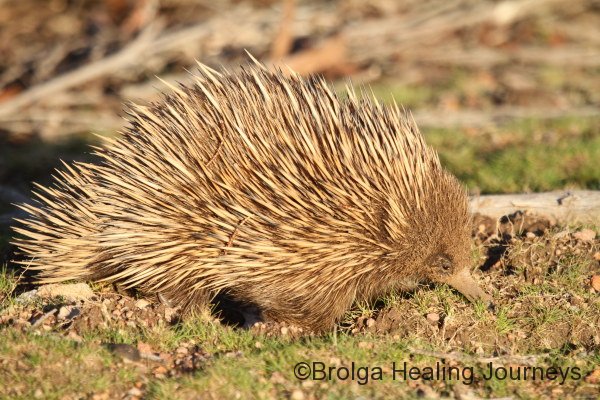
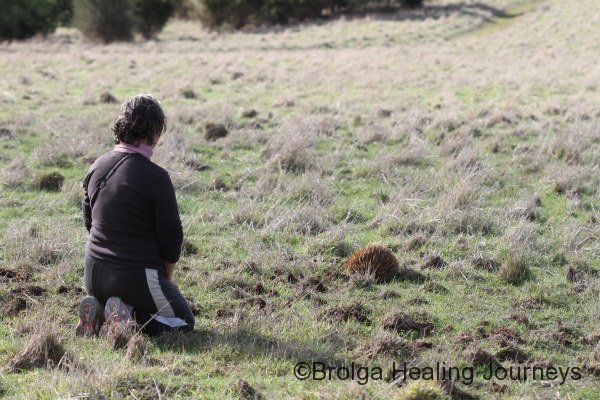
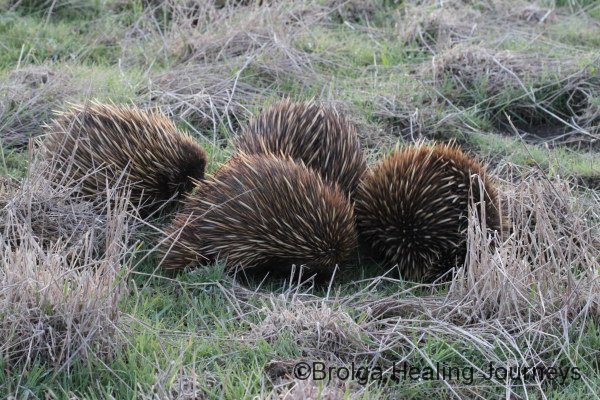
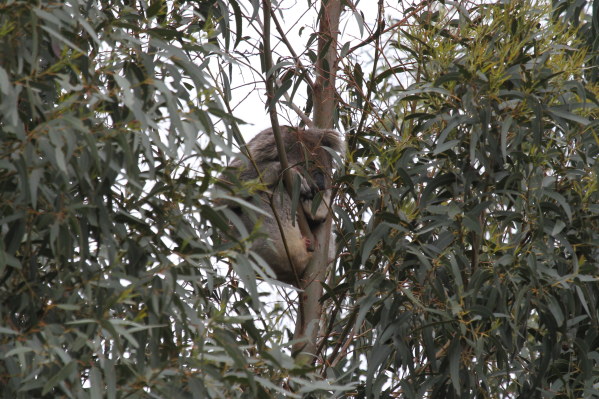
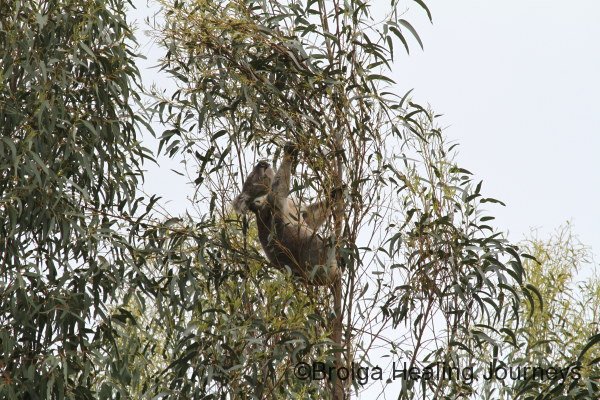
A pair of Scarlet Robins (Sir Robin and Lady Robin, if you please) have won our hearts. These dear little birds live near the studio and take a close interest in all our activities outside. A cynic might suggest they were on the lookout for food – such as the frequent feeds of worms whenever we weed around the house – but we prefer to believe they are just being friendly. Sir Robin has alighted upon Nirbeeja’s head a couple of times for a better view of her weeding activities ,and gratefully taken a couple of grubs she placed on her leg for him. I’m not sure who’s training who!
There are too many other bird species here to go into much detail, but some are special. Most evenings we hear the eerie cries of the local Bush Stone Curlews, sometimes very close by. We are yet to see them but at least we know they are there (the total absence of foxes on KI helps their numbers island-wide). We occasionally see the Yellow-Tailed Black Cockatoos in flight, and late one afternoon we had a large (30 plus) flock pass directly overhead on their way to our dam and beyond. We hope to see the endangered Glossy Black Cockatoo on our property, as a large area of revegetation including Drooping She-Oak, undertaken by previous owner Dan, should provide a good food source for them. The Glossy-Black will be the avian holy-grail for us here!
Our valley is home to many Gang-Gang Cockatoos, gorgeous birds with their rusty-gate call. We also have frequent visits from the beautiful Crimson Rosellas and Rainbow Lorikeets, and are entertained by the mellifluous songs of the Grey Shrike Thrush and Golden Whistler.


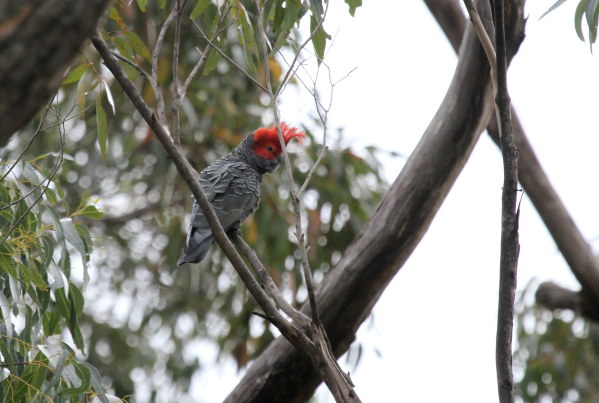
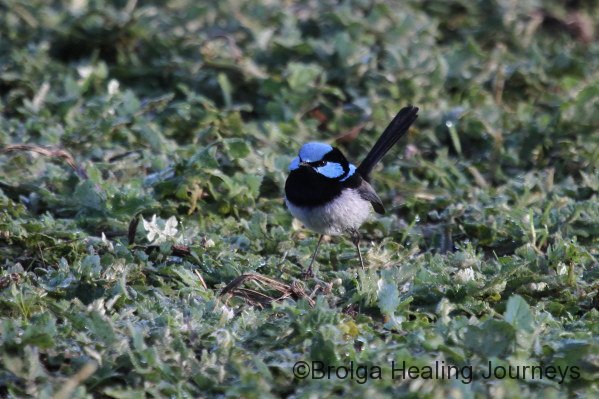
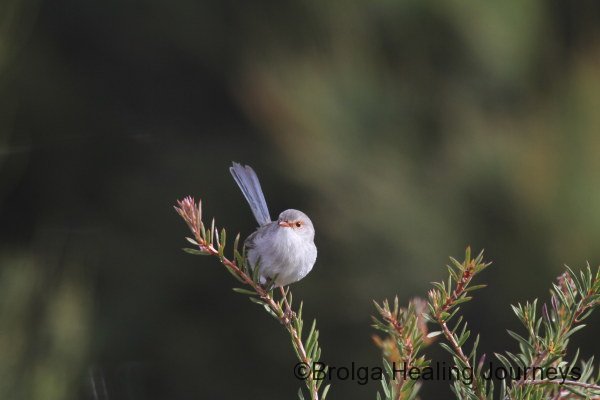
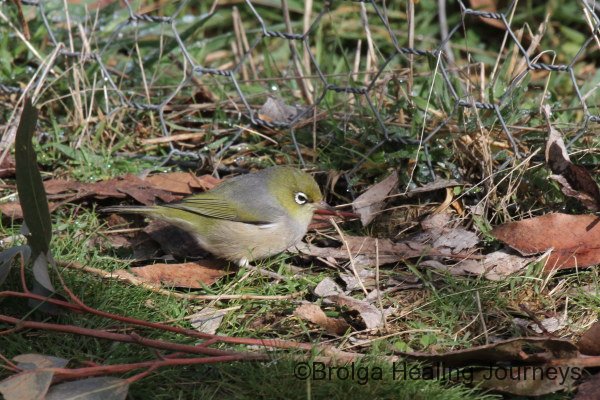
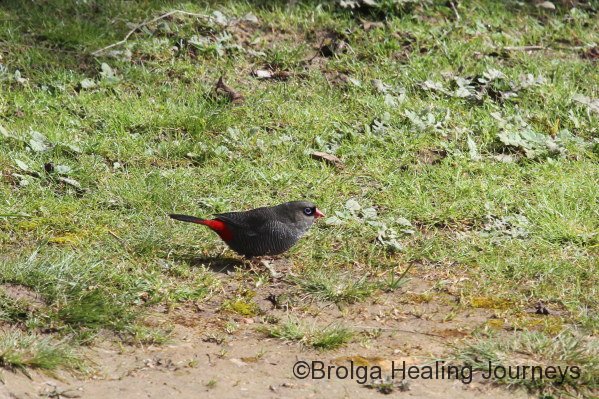
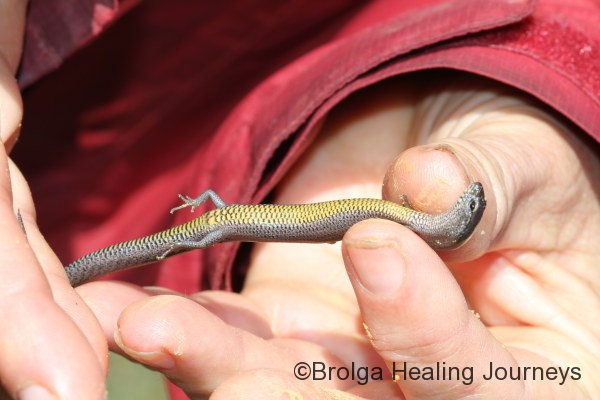
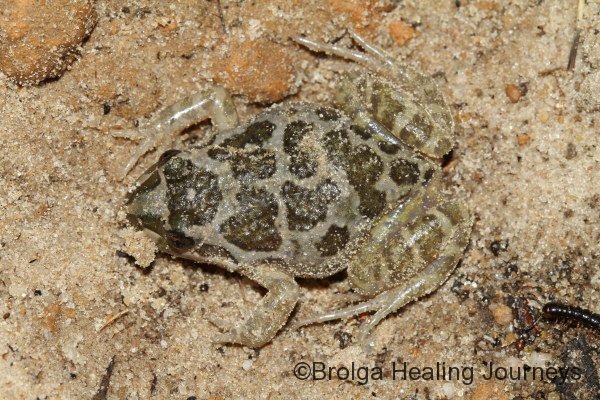
FURTHER AFIELD
Believe it or not, we do manage to drag ourselves away from here at times. We make a weekly pilgrimage into Kingscote, the big smoke on KI, to pick up the mail and get supplies. We’ve also ensured the local hardware stores stay profitable as we build up our range of tools and equipment for life on the land.
We’ve met quite a few people already, despite our relative isolation out here in the wild west of KI. We are pleased to say that no-one has dispelled our notion that KI is populated by friendly and helpful people.
We have joined our local Friends of Park group, which gets together once a month in the various national parks and reserves on this end of the island to carry out a variety of volunteer landcare activities, ranging from weeding, to seed collecting, to revegetation, to plant identification and fauna surveys. It has been a wonderful way us to meet some like-minded people as well as do our bit for the preservation of the wonderful wilderness of KI while getting to explore it with people who know it well.

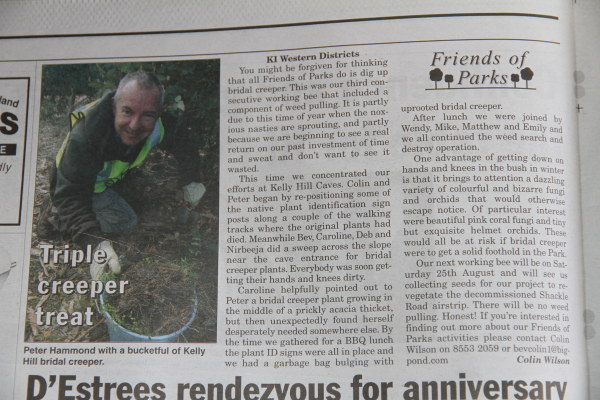
WILDERNESS VALLEY STUDIO
The previous owners of Wilderness Valley rented out the studio as short-term accommodation for couples, and we have decided to continue the business. We simply go camping whilst guests are in residence, enjoying other aspects of KI. And it is lovely to be able to share the beautiful residence and property we have here, with people from all over the world. Come visit us and experience it for yourself!
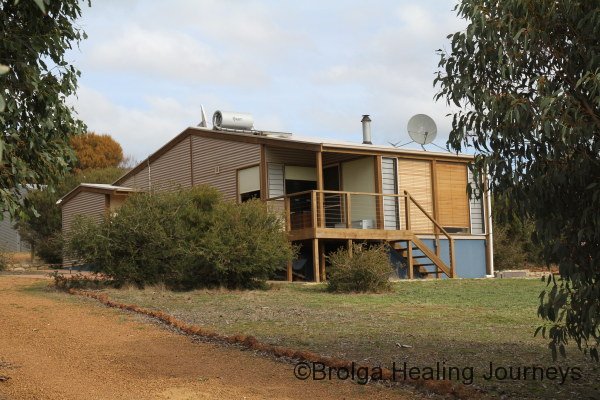
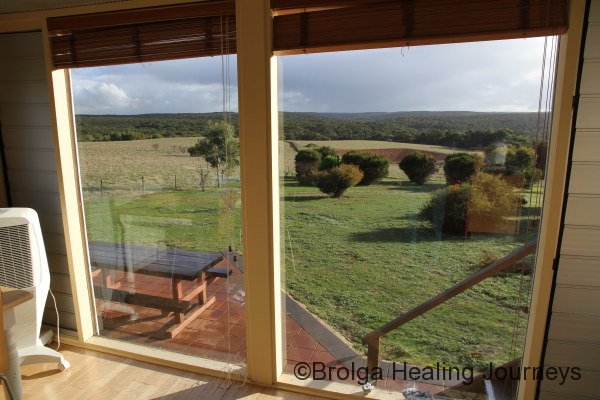
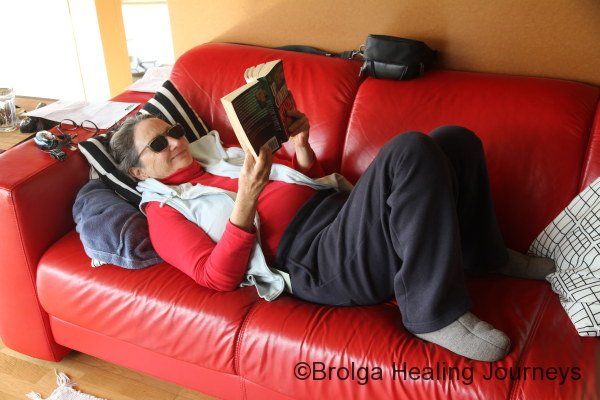
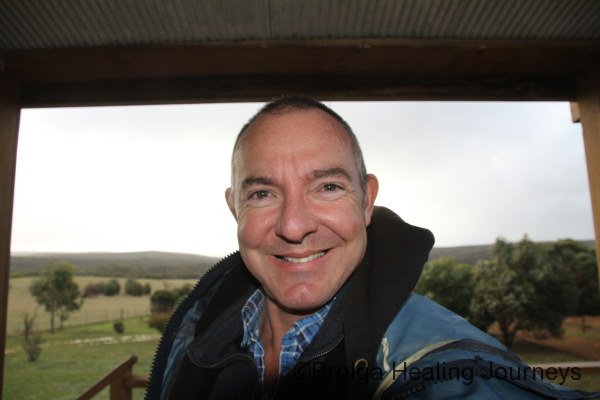
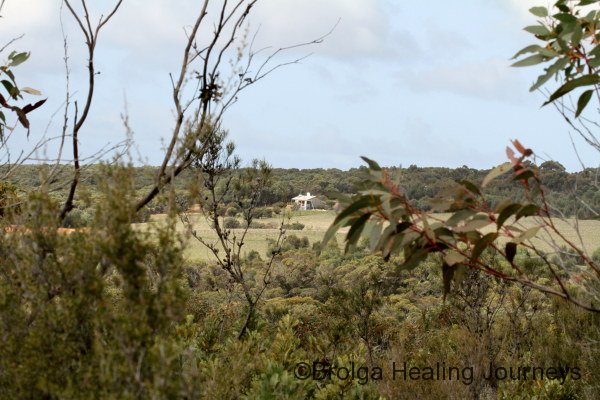

Till next time.
Peter
28 August 2012
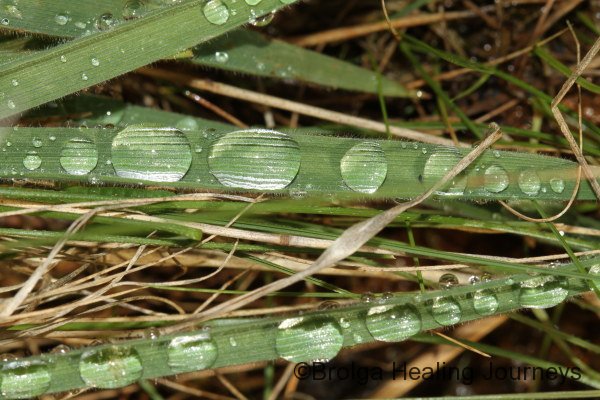
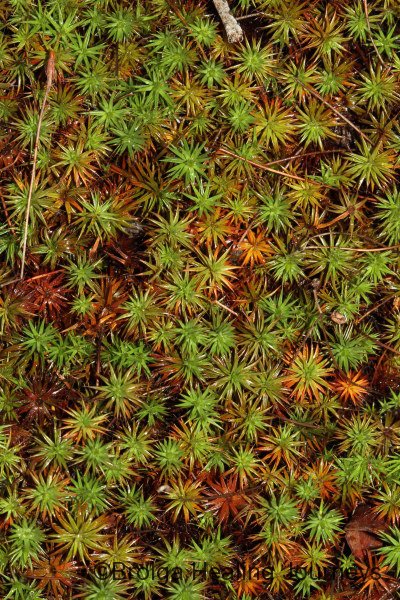

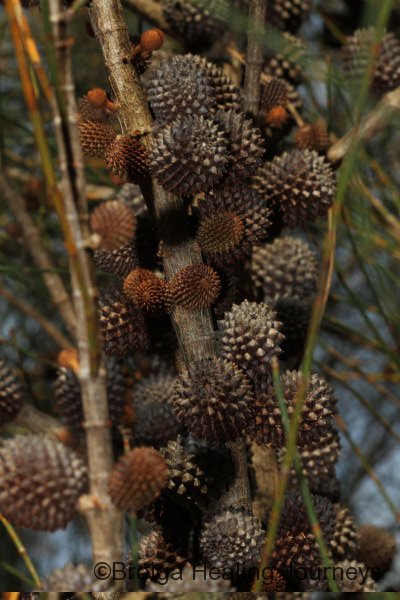

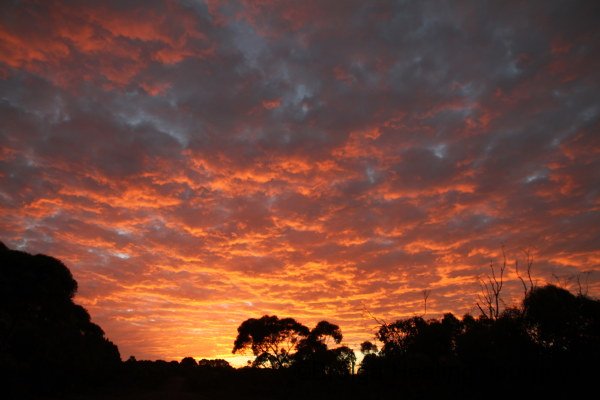






















































































































































































peter and lilly we recieved your beautiful email of your beautiful property ,we wont be able to go over to ki for at least two years as we have holidays planned .xmas with barrys mum .july 2013 a trip to lords to cricket and europe away about 5 weeks.we are both fit and well.regards barry and jenny .
Hi Barry and Jenny
Great to hear from you and thanks for your lovely comments. We’d love to see you over here in a couple of years. In the meantime enjoy all your travels (Peter is especially envious of your trip to Lords). All the best. Peter & Lily (Nirbeeja)
What an amazing place to call your home!
Loved the photos and commentary.
Are you settled there, or is this a mere perching on the great flight of life?
We look forward to catching up one day and sharing adventure stories.
Love
Michael and Debs
Deb & Michael!! Wonderful to hear from you. Yes, we’d love to catch up again, whether it’s here, Canberra or wherever. We are sort of settled here, but hope to keep travelling as well. We want the best of both worlds! We are spending time here at present because it’s so gorgeous. Hope you are both well. Love
Peter & Nirbeeja
Dear Nirbeeja and Peter,
What a beautiful pictures and what a wonderful life you have on the island.I hope we will see it one day. Love, Willemina.
What a thrill it is to hear from you Willemina! We were so happy to hear from Alick that you were better and hope everything continues to improve for you. We’d love to see you and Alick here one day (if we don’t get to Geraldton first). Love and best wishes for good health. Peter & Nirbeeja
Hello you happy wanderers – so glad to receive your email.
King Island is certainly a contrast to Windjana Gorge! Gained much vicarious pleasure reading stories of your journeys, your new home, and viewing the brilliant photo-record of all that makes up your world. I am still moving around. Now full time house/animal sitting for friends all over the place, while they travel. Loving the variety and different experiences this brings. Will be back to this site often and look forward to the next update. Warmest wishes to you both, Merilyn
Hello Merilyn! Great to hear from you. We still talk about meeting you at Windjana Gorge and hope to catch up again one day. Enjoy your life of moving around. Best wishes. Peter & Nirbeeja
Hello to you both,every Blessing to you for this New Year! It is beautiful to see your log of some of your life on KI – we remember our trip there with great joy as we look forward to a 3 month journey to the Kimberly this year, hopefully timing our arrival for just after the wet and the grading of the roads! Thank you as always for the beautiful photos – as we’ve been there many of the flora and fauna are very familiar – but the variety of fungi is amazing! We saw, albeit fleetingly, glossy blacks on the walk to the Billy Goat Falls in the Western Rv wilderness protection area up on the north west coast – hope you get to see some on your property!
much love Shannon and Rod